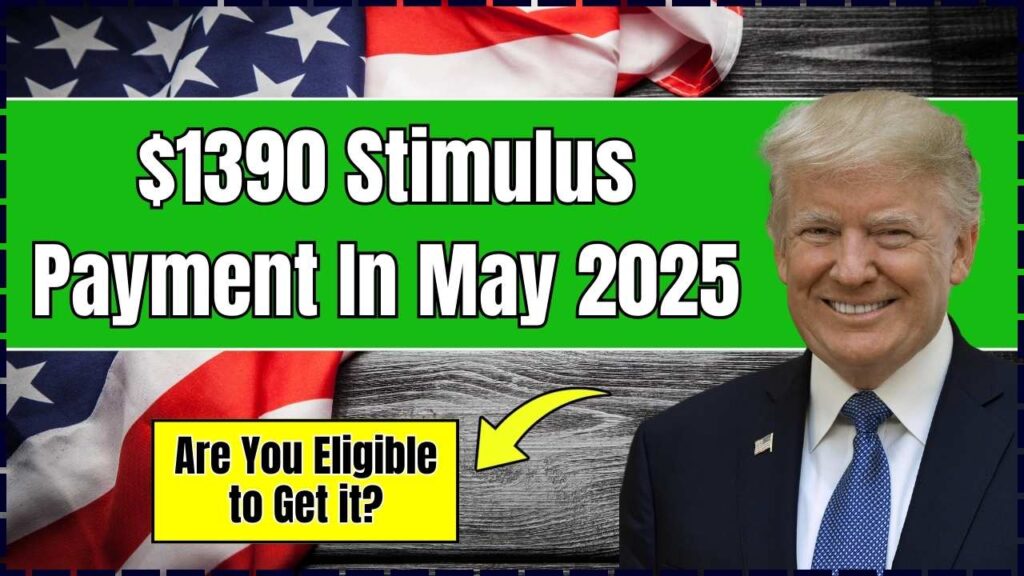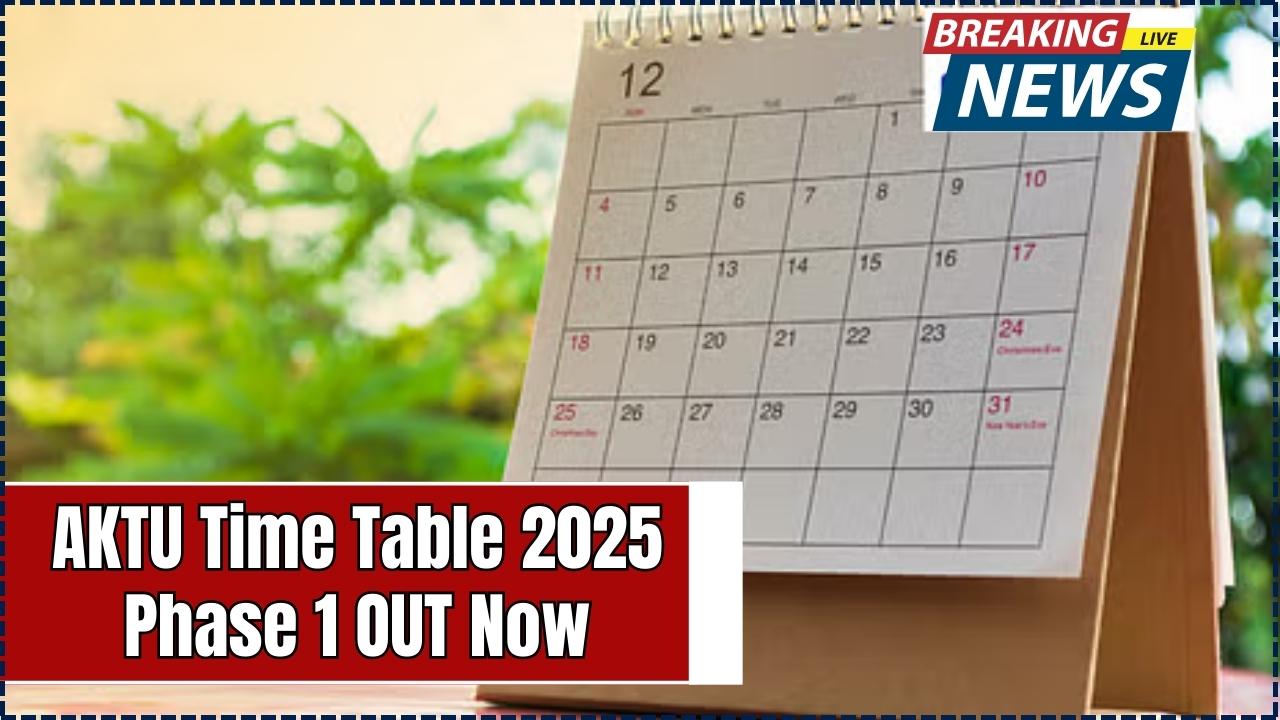$1390 Stimulus Payment In May 2025: The topic of stimulus checks has once again caught national attention. Many Americans are asking: Is there a $1390 stimulus payment in May 2025, and who qualifies for it? While there is no new stimulus check from the federal government, a related automatic payout is being issued by the Internal Revenue Service (IRS) to nearly 1 million taxpayers who are owed up to $1,400 as part of a previously unclaimed Recovery Rebate Credit for the tax year 2021.

This article will break down the facts, dispel common myths, and guide you step-by-step through the eligibility requirements, payment schedule, and how to check your status.
$1390 Stimulus Payment In May 2025
| Feature | Details |
|---|---|
| Stimulus Payment Type | Recovery Rebate Credit Adjustment |
| Amount | Up to $1,400 per person |
| Who’s Eligible | Taxpayers who missed claiming the 2021 Recovery Rebate Credit |
| Eligibility Criteria | Based on income and filing status |
| Deadline to Qualify | April 15, 2025 |
| Payment Method | Direct deposit or paper check |
| Issuing Agency | Internal Revenue Service (IRS) |
| Official Website | irs.gov |
While the so-called $1390 stimulus payment in May 2025 isn’t a brand-new relief check, it is real money going to real people who missed their Recovery Rebate Credit from 2021. If you think you may qualify, now is the time to act. Check your tax records, confirm your filing status, and visit IRS.gov for official updates.
What Is the $1390 Stimulus Payment in May 2025?
Although it is being called a “$1390 stimulus payment,” this isn’t a new round of pandemic relief. Rather, it’s part of an IRS adjustment that automatically sends payments to taxpayers who did not claim the Recovery Rebate Credit on their 2021 tax returns.
The IRS began sending these checks in late 2024, and they are continuing through spring 2025, with many recipients receiving their payment in May 2025. Depending on your eligibility, you could receive up to $1,400 per individual or a similar amount based on your tax filing status.
This means that if you’re a single filer, you could get up to $1,400. If you’re married and file jointly, you could receive up to $2,800.
Who Is Eligible for the Payment?
To be eligible for the IRS’s Recovery Rebate adjustment in 2025, you must meet the following criteria:
Income Limits (2021 Return)
- Single filers: Up to $80,000
- Married filing jointly: Up to $160,000
- Head of household: Up to $112,500
Additional Requirements
- You filed a 2021 tax return, but did not claim the Recovery Rebate Credit (or entered $0 by mistake).
- You meet citizenship or residency status required by the IRS.
- You have not received the full third stimulus check from 2021.
If all of these apply, you are likely among the 1 million people identified by the IRS to receive this benefit.
$1390 Stimulus Payment In May 2025 Check If You Qualify
There are several ways to confirm your eligibility:
1. IRS Online Account
Log in to your IRS online account to review your tax records and see whether the 2021 Recovery Rebate Credit was claimed.
2. Look at Your 2021 Tax Return
Review line 30 on Form 1040. If it is blank or says $0, and you were eligible for a third stimulus payment, you may be due money.
3. Contact IRS Support
You can call the IRS or visit a local Taxpayer Assistance Center to confirm your status.
Payment Dates and Delivery Method
When Will You Get Paid?
The IRS has been issuing these payments in waves since December 2024. Many people are scheduled to receive payments in May 2025, especially those with pending adjustments or updated banking information.
How Will You Receive the Payment?
- Direct Deposit: Sent to the bank account listed on your 2023 or 2021 tax return.
- Paper Check: Mailed to your address on file with the IRS if direct deposit is not available.
Important: If your bank account has changed since your last return, your payment will likely be mailed as a check.
Claim the Payment If You Haven’t Filed
If you haven’t filed your 2021 tax return, there’s still time — but you must act fast. Here’s how:
$1390 Stimulus Payment In May 2025 Guide
- Gather Your Documents: Income statements, ID, and prior tax forms.
- Use Free File or a Tax Professional: You can file for free using the IRS Free File program if your income is under a certain limit.
- Claim the Recovery Rebate Credit: This must be done explicitly on Line 30 of your Form 1040.
- Submit Before Deadline: The deadline is April 15, 2025.
Missing the deadline means you may lose your chance to claim the payment.
FAQs
Q1: Is this a new federal stimulus check?
A: No, this is not a new stimulus program. It’s a correction for people who were eligible but did not claim the 2021 Recovery Rebate Credit.
Q2: How do I know how much I’m owed?
A: Check your IRS online account or line 30 of your 2021 tax return. You can also call the IRS.
Q3: I already received a third stimulus check in 2021. Do I get this too?
A: No. If you already received the full amount in 2021, you are not eligible for this payment.
Q4: What if I moved or changed banks?
A: Payments will be sent to your last known address or account. Update your information on the IRS website if needed.
Q5: Can I still get help with filing?
A: Yes. The IRS provides free assistance programs and partners with community organizations for free filing support.
Tips to Avoid Scams
Unfortunately, scams often surface during times of mass payments. Here’s how to stay safe:
- Never share personal information via email or phone unless you initiated the contact.
- IRS will never ask for payment via gift cards or wire transfer.
- Report suspicious activity on the IRS phishing portal.
Impact and Context
The IRS decision to send these payments automatically is a proactive move to correct past oversights. It highlights the agency’s commitment to ensuring eligible citizens receive the benefits they were promised during the pandemic.
This also serves as a reminder for taxpayers to carefully review all tax credits available each year and consult professionals if unsure.






